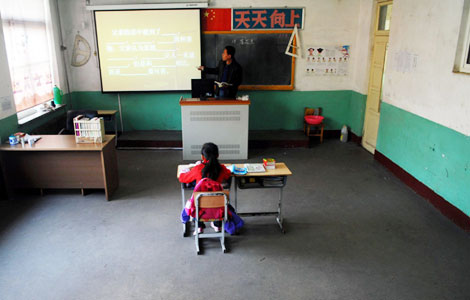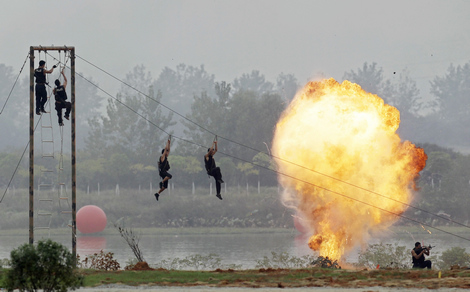Red Cross denies misusing funds for wartime laborers
Updated: 2011-10-21 08:04
By He Dan (China Daily)
|
|||||||||||
BEIJING - The Red Cross Society of China on Thursday denied accusations that it had misused a fund established to compensate Chinese laborers who were forced to work in Japan during World War II.
"The China Red Cross has not taken a penny from the fund or asked for fees to cover our administrative cost," said Zhang Hu, an official in the department in charge of the fund.
The fund was established with 500 million Japanese yen ($6.5 million) meant to give assistance to 986 Chinese laborers forced to work in Japan or to their families.
Since 2000, the organization has used the fund to dole out compensation to 520 such people, its website reported on Thursday.
The statement dismissed claims that the China Red Cross has withheld half of the money and said the fund has been managed in accordance with the country's regulations and that its account records have been audited by the National Audit Office.
The China Red Cross has not made records about the use of the fund public.
"As required by the fund's management committee, the fund containing 500 million yen was divided into two parts," Zhang said. "One of those was to be used as one-off payments, as living subsidies for survivors or to pay for their children's educations."
He said the other 250 million yen has been allocated to arrange visits to honor Chinese laborers who are buried in Japan, to build memorials to the victims of the forced labor and to do other things to "help both the Chinese and Japanese peoples remember and draw lessons from history".
In 1995, 11 Chinese people filed a lawsuit against Kajima, a Japanese company, because its wartime predecessor, Kajima-gumi, had operated the Hanaoka Labor Camp in Akita prefecture and pressed 986 Chinese into hard labor.
During World War II, it is believed that 40,000 Chinese were taken to Japan to work as slave laborers, supporting the country's economy and production of weaponry at a time when most Japanese men were serving in their country's army.
After a five-year court battle, Kajima and the Chinese plaintiffs reached an agreement in the Tokyo High Court, in which Kajima agreed to set up a 500 million yen Hanaoka Peace and Friendship Fund but denied any legal responsibility for the forced labor.
In 2000, the fund's management committee, which was composed of a Chinese person who had to work in Japan, a relative of one of the victims, a China Red Cross official and three Japanese, including one lawyer, was established, and the China Red Cross was appointed to be the operator of the fund.
In an interview with China National Radio, Li Min, a writer whose main subject is the forced wartime labor, was quoted as saying that the China Red Cross should tell the public how the money in the fund has been spent and where the rest of the it will go. That's especially true, she said, since the organization has not managed to find more than 400 of the Chinese who were forced into labor or their families.
"There is indeed some money left, but the (China) Red Cross cannot disclose the financial information without the fund's administration committee's permission," Zhang said.
Deng Guosheng, director of the NGO Research Center at Tsinghua University, argued that the China Red Cross is not obliged to publish information about the fund because the money that went into it came from a Japanese company "rather than from the public".
One relative of someone who was forced into labor said he does not know if the fund is going toward the proper purpose.
"We have no idea whether the China Red Cross misused the money since my family refused to accept the money from the Japanese company," said Geng Shuoyu, whose 97-year-old father, Geng Zhun, was forced to work for Kajima in 1944.
"Kajima did not feel sorry for its wrongdoing and called the money a donation instead of compensation," Geng said. "My family can never accept that."
Related Stories
Red Cross hit by new claims 2011-10-14 07:36
China's Red Cross to send $7.8m aid to Libya 2011-10-13 14:07
Hot Topics
Libya conflict, Gaddafi, Oil spill, Palace Museum scandal, Inflation, Japan's new PM, Trapped miners, Mooncake tax, Weekly photos, Hurricane Irene
Editor's Picks

|

|

|

|

|

|







